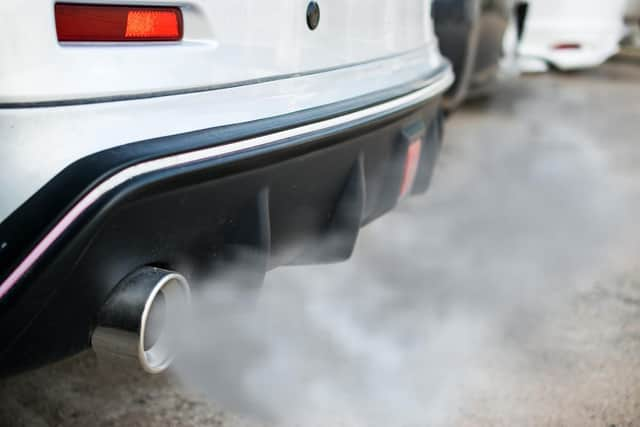Green Falkirk: Transport emissions across Falkirk Council area fell by record amount in 2020
and live on Freeview channel 276
Friends of the Earth said though a national drop in transport emissions is not surprising due to successive lockdowns during the first year of the coronavirus pandemic, the Government should do more to encourage people to switch to electric vehicles or ditch their cars entirely as emissions rebound.
Department for Business, Energy and Industrial Strategy figures show transport – including cars, trains and other modes of travel – caused 292 kilo-tonnes of carbon dioxide equivalent (ktCO2e) emissions in Falkirk in 2020.
Advertisement
Hide AdAdvertisement
Hide AdThis was down from 366 the year before and the largest decrease since 2005, when records began – that year, transport emissions hit 390 ktCO2e.


Carbon dioxide equivalent determines the amount of CO2 that would need to be emitted to equal the same global warming potential of other produced greenhouse gases.
Road vehicles accounted for 98 per cent of transport emissions, while diesel-powered trains produced a further 1 per cent.
Across the UK, the carbon footprint caused by transport dropped by a record 23,350 ktCO2e (18 per cent), from 130,021 to 106,671.
Advertisement
Hide AdAdvertisement
Hide AdFriends of the Earth attributed the dramatic fall to the general public travelling less during lockdown.
Mike Childs, head of policy, said rebounding traffic levels are now contributing to the Government's struggle in meeting its climate targets.
The Government pledged to cut emissions by 78 per cent by 2035 compared to 1990 levels and reach net zero by 2050.
"Ministers must do more to help people switch to electric vehicles or, better still, encourage them to leave their cars at home by providing better public transport and making it safer to walk and cycle," added Mr Childs.
Advertisement
Hide AdAdvertisement
Hide Ad"This would boost our energy security, cut soaring bills and slash the dangerous emissions that are warming our planet."
A Government spokesperson said: "We have committed unprecedented funding to encourage walking and cycling, as well as to accelerate the roll-out of electric vehicles – both vital steps to reaching our world-leading net zero targets.
"This includes the £2.5 billion rollout of zero-emission vehicles and charging infrastructure across the country, ensuring the switch is as simple as possible for motorists."
Nationally, 377,680 ktCO2e of greenhouse gases were emitted in 2020 – down from 416,168 the year prior.
Advertisement
Hide AdAdvertisement
Hide AdFalkirk's total greenhouse gas emissions fell to 2,275 ktC02e in 2020, down 4 per cent from 2,275 the year before.
And in 2019 there had been a 6.6 per cent decrease.
Of this, 13 per cent was caused by transport, while commercial emissions accounted for 1 per cent, industry produced 67 per cent and domestic use 10 per cent.
The average person in Falkirk produced 14 tCO2e in 2020.
There are already plans for a Carbon Dioxide Utilisation (CDU) Centre at Grangemouth which will support the development, manufacturing and use of low carbon technologies, which will help companies substitute their products and industrial processes with low carbon alternatives, using CO2 as feedstock.
The Centre will also be well situated to link in with hydrogen and wider Carbon Capture Use and Storage (CCUS) projects.
